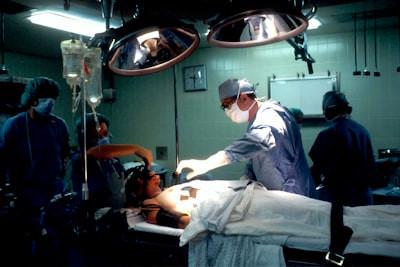Explore the World's Best Ideas
Join today and uncover 100+ curated journeys from 50+ topics. Unlock access to our mobile app with extensive features.
Organophosphate Poisoning: Mild Exposure
Organophosphate poisoning can be short- or long-term.
It is usually due to the insecticides , fertilizers used on farms.
Symptoms can occur within several minutes or hours of exposure.
Mild exposure may cause:
- narrowed, pinpointed pupils
- impaired, blurry vision
- stinging eyes
- runny nose
- watery eyes
- excess saliva
- glassy eyes
- headache
- nausea
- muscle weakness
- muscle twitching
- agitation
- very narrowed pupils
- confusion
- agitation
- convulsions
- excessive body secretions like- sweat, saliva, mucus,tears
- irregular heartbeat
- collapse
- respiratory depression or arrest
- coma
2
12 reads
Organophosphate Poisoning: Severe Exposure
Organophosphate poisoning can cause several serious complications. These include:
- metabolic disorders, such as hyperglycemia (high blood sugar) and glycosuria (excess sugar in urine)
- diabetic ketoacidosis , in which your blood produces excess blood acids
- pancreatitis , or inflammation of the pancreas
- cancer
- neurological problems, such as muscle weakness and twitching, poor concentration, poor memory, and post-traumatic stress disorder
- fertility problems
Complications tend to become worse the longer and more intensely you are exposed to organophosphates.
2
12 reads
Organophosphate Poisoning: Risks and Steps to Cure
- Most people at-risk for unintentional organophosphate poisoning are who live or work on or near farms.
- Organophosphate poisoning can happen by consuming contaminated food or water.
The first goal of treating emergency cases is stabilization. Emergency care workers will:
- decontaminate your body to prevent further exposure
- stabilize your breathing
- use intravenous fluids to flush your system of toxins
In non-emergency cases, supportive therapy will be used.
- Close attention to breathing. As respiration is weakened by organophosphate exposure.
3
10 reads
Organophosphate Poisoning: Treatment & Drugs
- Doctors may administer -
- Atropine to stabilize your breathing.
- Pralidoxime, which can help relieve neuromuscular problems.
- In severe cases, Benzodiazepine to prevent or stop seizures
- If exposed to organophosphates in small doses and don’t need to be hospitalized,a low dose of atropine will be enough.
- An injection of 10 mg diazepam is recommended for people exposed to chemical attacks of organophosphates.
Organophosphate poisoning is a serious medical condition. Long, high-intensity exposures are the most concerning.Seek emergency treatment immediately if severe signs of poisoning.
2
8 reads
IDEAS CURATED BY
Vaidehi Watwe's ideas are part of this journey:
Learn more about health with this collection
The benefits of a ketogenic diet
The science behind the ketogenic diet
The potential risks of a ketogenic diet
Related collections
Similar ideas
3 ideas
Is It Possible to Overdose on Chocolate?
psychologytoday.com
1 idea
4 ideas
Parkinsonism: Symptoms, treatment, and diagnosis
medicalnewstoday.com
Read & Learn
20x Faster
without
deepstash
with
deepstash
with
deepstash
Personalized microlearning
—
100+ Learning Journeys
—
Access to 200,000+ ideas
—
Access to the mobile app
—
Unlimited idea saving
—
—
Unlimited history
—
—
Unlimited listening to ideas
—
—
Downloading & offline access
—
—
Supercharge your mind with one idea per day
Enter your email and spend 1 minute every day to learn something new.
I agree to receive email updates
